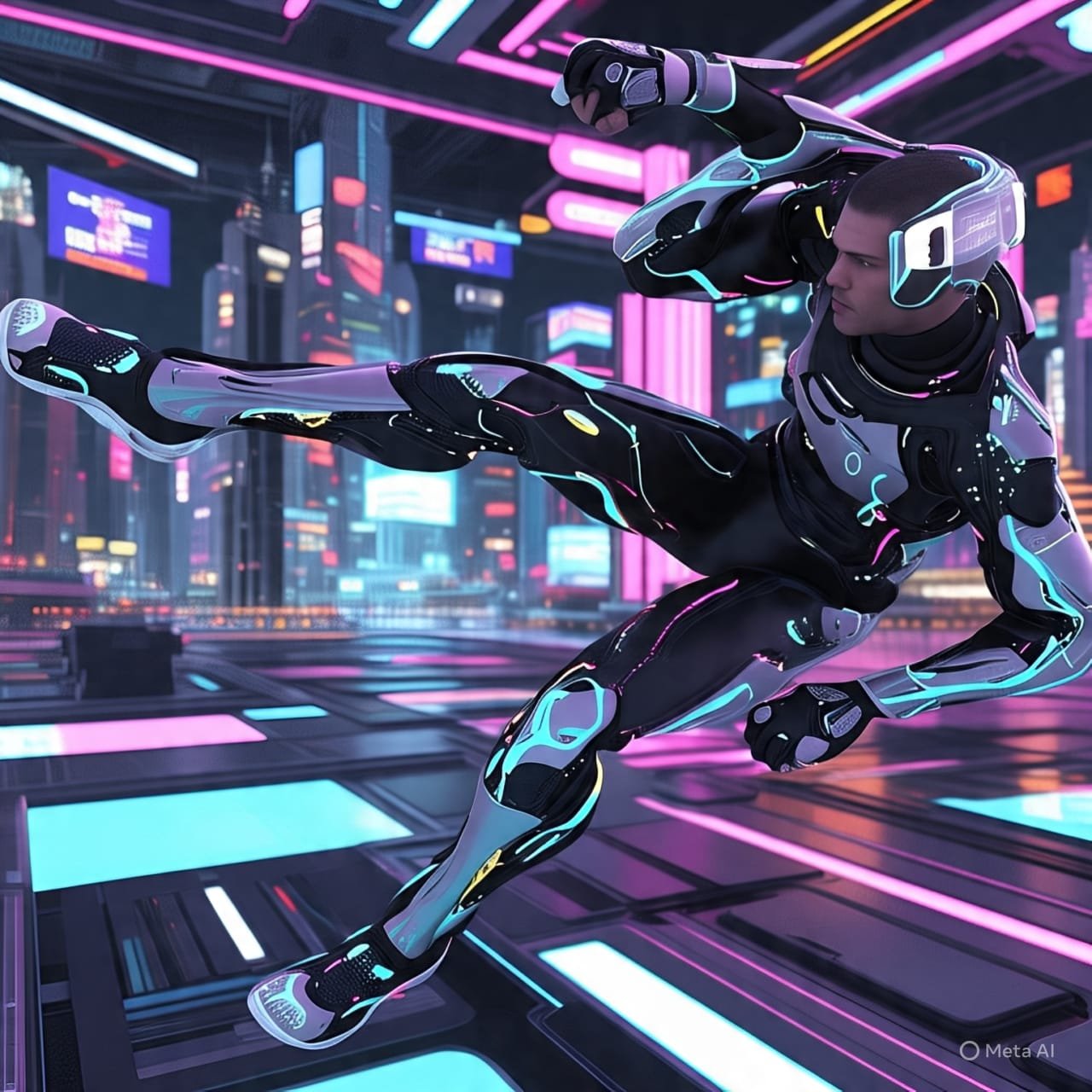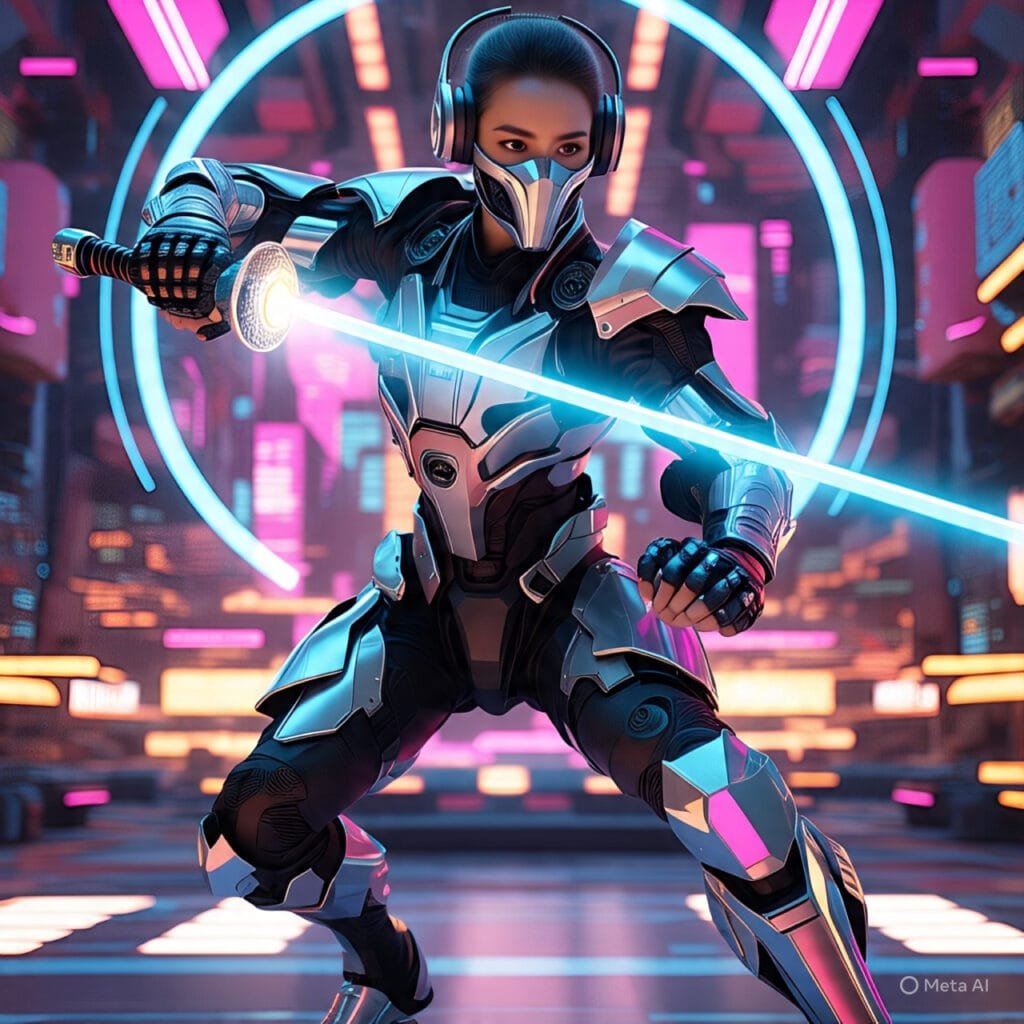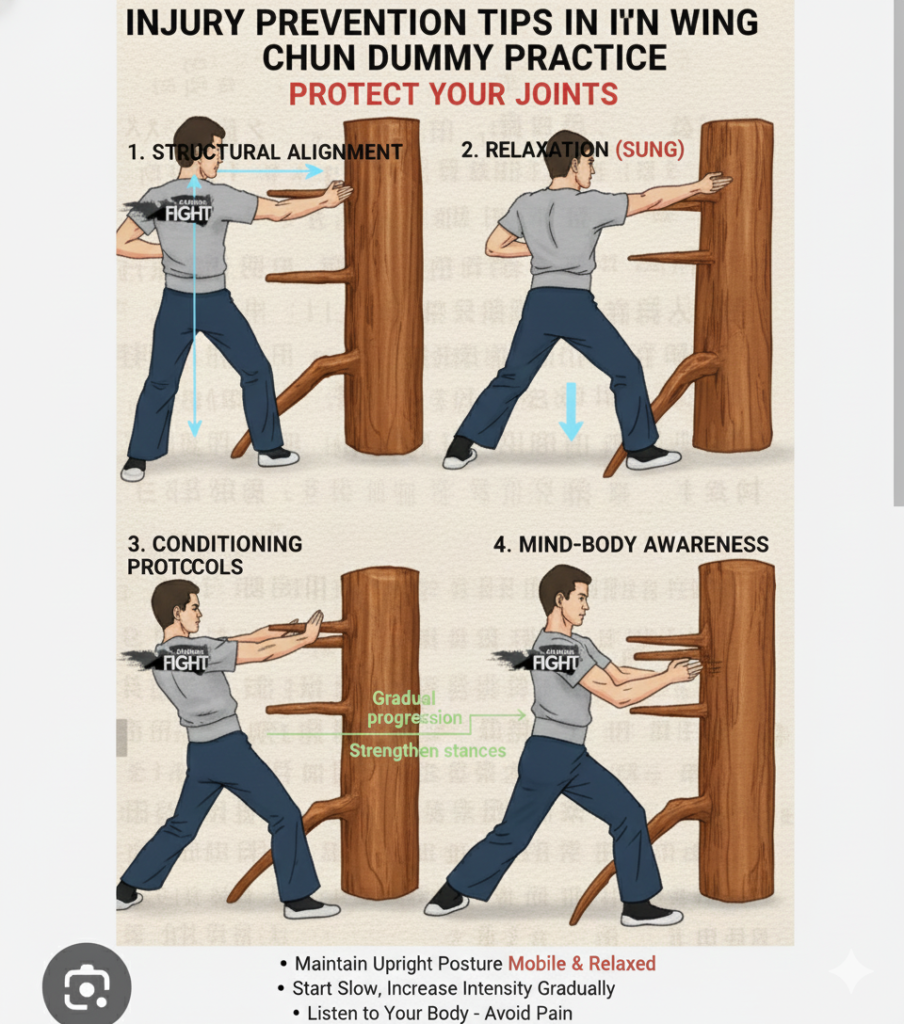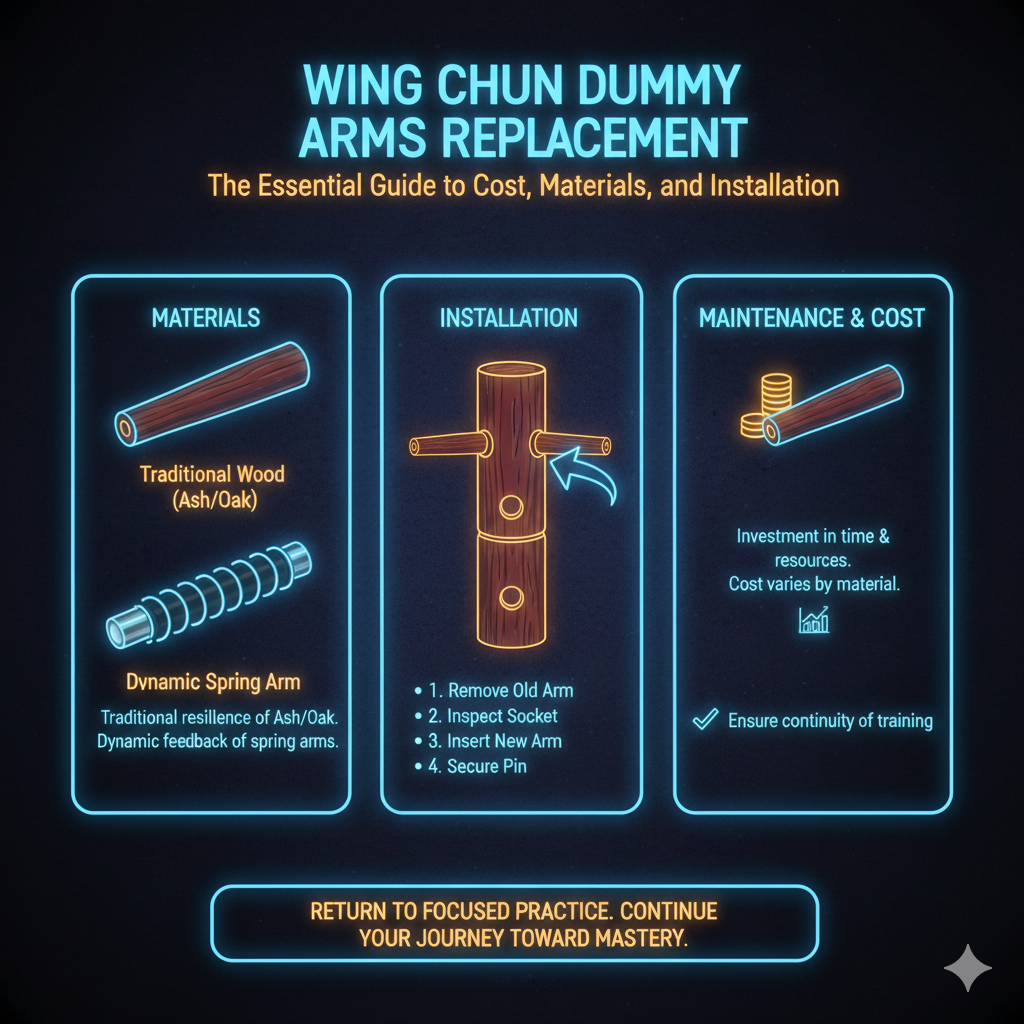Ever dreamed of honing your martial arts skills against diverse opponents from home?
What if those opponents adapted to your every move, pushing you to new levels of mastery?
The future of martial arts training is here, in the Metaverse.
Imagine strapping on a VR headset and stepping into a virtual dojo, where ancient Wing Chun meets cutting-edge AI.
This isn’t just a game; it’s a revolutionary way to train, learn, and evolve as a martial artist.
This post explores how Wing Chun, renowned for efficiency and directness, finds a powerful new home in virtual reality.
We’ll delve into the exciting possibilities AI-powered fighters bring, offering personalized, dynamic training experiences once unimaginable.
Get ready to discover how the Metaverse opens unprecedented opportunities for martial artists worldwide, transforming practice and perfection.

Videos are added as random thoughts 💭 💭.
The Essence of Wing Chun: A Brief Overview
Wing Chun is more than a fighting style; it’s a philosophy rooted in efficiency and directness.
This Southern Chinese kung fu system focuses on close-quarters combat, emphasizing rapid-fire punches and straightforward self-defense.
Its core principle revolves around controlling an opponent’s ‘centerline,’ using simultaneous attack and defense, tactile sensitivity, and redirecting force.
It’s designed for practical self-defense, prioritizing effectiveness over flashy movements.
Ip Man, a Wing Chun grandmaster, popularized the art globally, especially through his most famous student, Bruce Lee.
Its recent surge in popularity, fueled by the *Ip Man* film series and appearances in games like Tekken 7, showcases its enduring appeal.
Stepping into the Virtual Dojo: VR and the Metaverse in Martial Arts Training
Virtual Reality (VR) and the burgeoning Metaverse have opened exciting new avenues for martial arts training.
Practitioners are no longer limited by geography or training partners. VR fitness applications lead this revolution, integrating martial arts into immersive digital environments.
For instance, apps like FitXR for Meta Quest 2 and Quest Pro offer comprehensive combat training modes.
These platforms allow users to engage in virtual workouts incorporating movements from various martial arts disciplines, including karate, Muay Thai, Taekwondo, and boxing.
These VR training platforms are sophisticated tools enhancing physical conditioning and technique.
VR’s immersive nature allows repetitive practice in a controlled environment, building muscle memory and refining execution.
While these virtual workouts offer immense potential, proper form and warm-up are crucial to prevent injuries.
The goal is to supplement, not entirely replace, traditional training, ensuring a holistic approach.
The Rise of AI Fighters: Intelligent Opponents in VR
The true game-changer in Metaverse martial arts training is AI integration to power virtual opponents.
Imagine sparring with an opponent who adapts to your every move, learns your weaknesses, and challenges you dynamically.
This is the promise of AI-powered fighters in VR.
These intelligent adversaries analyze your technique, reaction time, and decision-making in real-time, providing personalized training.
If you hesitate, the AI might press its advantage; if you repeat a pattern, it might counter.
This adaptive learning environment pushes practitioners to think critically and respond instinctively, mirroring real-world combat.
AI in VR training offers many benefits. It precisely tracks trainee performance, recording every movement, decision, and reaction.
This data identifies areas for improvement and tailors future training. AI-driven simulations offer a cost-effective, safe way to replicate dangerous situations.
Trainees experience intense combat without physical danger, an invaluable tool for beginners and advanced practitioners.
AI’s ability to create unique, progressively challenging sessions ensures training remains engaging and effective.
The Synergy: Wing Chun, VR, and AI – A New Era of Training
The convergence of Wing Chun, VR, and AI creates a powerful synergy, ushering in a new era of martial arts training.
Wing Chun, with its emphasis on efficiency, directness, and close-quarters combat, is uniquely suited for VR.
Core principles like centerline control, simultaneous attack and defense, and tactile sensitivity can be effectively simulated.
Imagine an AI opponent mimicking a Wing Chun master, allowing practice of sticky hands (Chi Sao) or chain punches with realistic resistance and feedback.
This integration allows personalized instruction and repetition often difficult in traditional dojos.
An AI fighter can focus on specific weaknesses, providing targeted drills.
Immediate VR feedback, combined with adaptive AI, accelerates learning and refines muscle memory.
The Metaverse becomes a global dojo, accessible to anyone with a VR headset, democratizing high-quality martial arts training and fostering skilled practitioners.
Benefits of Training Wing Chun in the Metaverse
Integrating Wing Chun with VR and AI offers many benefits.
Firstly, accessibility increases dramatically.
Geographic location and busy schedules no longer hinder consistent training, democratizing access to high-quality instruction.
Secondly, personalized training is unparalleled.
AI-powered opponents customize to your skill, adapting in real-time.
The AI identifies improvement areas, offering targeted drills and feedback difficult to replicate with a human partner.
Thirdly, safety is enhanced. Virtual training eliminates physical injury risk, allowing experimentation without harm.
This creates a safe space for learning and rapid skill development.
Fourthly, cost-effectiveness is a major advantage.
While initial VR hardware investment exists, it significantly reduces ongoing traditional training costs.
The virtual environment provides an efficient, economical solution.
Finally, data-driven insights from AI are invaluable.
Every session is recorded and analyzed, offering metrics on performance, reaction times, and technique.
This transforms training into a scientific, measurable endeavor, leading to faster skill acquisition.
The Future of Martial Arts Training
Wing Chun, VR, and AI integration is just the beginning of a profound transformation.
Virtual dojos will become commonplace, offering unparalleled learning. Imagine a future where:
Global Collaboration: Martial artists worldwide connect and train in shared virtual spaces, fostering a global community.
Hyper-Realistic Simulations: VR realism will be indistinguishable from reality. Haptic feedback suits could simulate strikes and blocks, providing immersive, tactile training.
AI-Powered Mentors: AI could evolve into personalized mentors, analyzing movements, identifying flaws, and offering real-time, corrective feedback.
Gamified Learning: VR and AI’s gamification potential makes training engaging. Challenges, leaderboards, and virtual rewards motivate practitioners.
Integration with Physical Training: Virtual and physical worlds merge. VR data optimizes real-world training, and vice-versa.
The future of martial arts training augments traditional methods, making them more accessible, personalized, and effective.
The Metaverse, powered by AI, is poised to become an indispensable tool for martial artists.
Conclusion
The fusion of Wing Chun, VR, and AI represents a monumental leap forward.
It offers a compelling vision where ancient martial arts wisdom is amplified by technology.
From VR’s accessibility and personalized training to AI’s adaptive opponents,
the Metaverse transforms how we learn, practice, and master Wing Chun.
This is not novelty; it’s a profound evolution promising engaging, effective, and accessible training.
As we explore these technologies, one thing is clear: tomorrow’s dojo is boundless, and the journey to mastery more exhilarating.
Embrace the future, step into the virtual dojo, and unle
ash your inner martial artist in the Metaverse.



